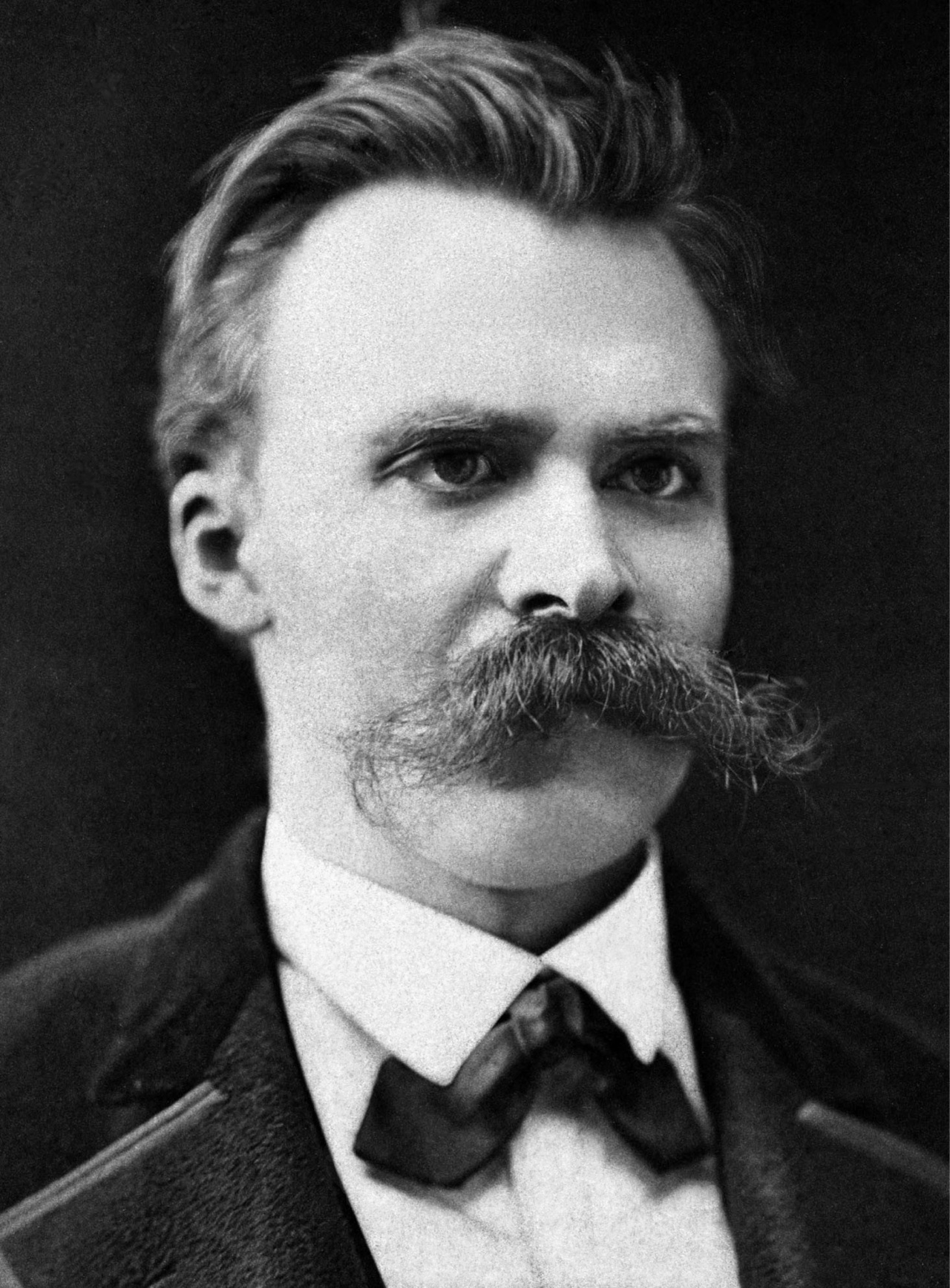Friedrich Nietzsche (1844—1900)
Friedrich Nietzsche (1844-1900) remains one of the most influential and controversial philosophers in Western thought. His critiques of traditional morality, religion, and societal norms have left an indelible mark on various fields, including philosophy, psychology, literature, and cultural criticism.
Nietzsche’s philosophy is often described as radical, unsettling, and ahead of its time, challenging the very foundations of European culture. His ideas on the “will to power,” “eternal recurrence,” and the “Übermensch” (overman) have ignited debates for over a century and continue to resonate in contemporary discussions on human existence, ethics, and the meaning of life.
Table of Contents
Early Life and Intellectual Development
Nietzsche was born on October 15, 1844, in the small Prussian town of Röcken, now part of modern-day Germany. His father, a Lutheran pastor, died when Nietzsche was just five years old, which had a profound effect on the philosopher’s early life. Raised in a pious Christian household, Nietzsche was initially inclined toward theology. However, during his university years, his interest shifted to classical philology—the study of ancient Greek and Roman texts.
At the University of Leipzig, Nietzsche encountered the works of Arthur Schopenhauer, a philosopher whose pessimistic worldview greatly influenced Nietzsche’s early thinking. Schopenhauer’s emphasis on the irrational and suffering aspects of life resonated with Nietzsche, though he would later reject much of Schopenhauer’s conclusions in favor of his own, more life-affirming philosophy. Another significant figure in Nietzsche’s intellectual development was Richard Wagner, the German composer. Nietzsche initially admired Wagner’s operatic works and shared his vision of art’s transformative power, but the two eventually had a falling out, as Nietzsche grew critical of Wagner’s nationalism and his adherence to traditional German values.
By 1869, Nietzsche had achieved remarkable academic success, becoming the youngest-ever chair of classical philology at the University of Basel. However, his academic career was short-lived. Plagued by health issues, Nietzsche resigned from his professorship in 1879 and spent the next decade traveling across Europe while writing some of his most important philosophical works.
Key Philosophical Ideas
Critique of Traditional Morality
One of Nietzsche’s most enduring contributions to philosophy is his critique of traditional Christian morality. In works like On the Genealogy of Morality (1887) and Beyond Good and Evil (1886), Nietzsche argues that the dominant moral values of Western society—values such as humility, self-denial, and compassion—stem from what he called “slave morality.” According to Nietzsche, these values were created by the weak as a way to control the strong. He contrasted this with “master morality,” which celebrates power, strength, and nobility of character.
For Nietzsche, Christian morality encourages a denial of life by promoting concepts like sin and guilt, leading individuals to repress their natural instincts and desires. He famously declared, “God is dead,” a proclamation that symbolized the collapse of traditional religious and moral frameworks in the face of modernity. Nietzsche believed that the death of God would pave the way for a revaluation of values—a need to create new values that affirm life rather than negate it.
The Will to Power
A central concept in Nietzsche’s philosophy is the “will to power”. For Nietzsche, life itself is a manifestation of the will to power, an intrinsic drive toward growth and expansion. He believed that human beings, like all living creatures, are fundamentally driven by this force. However, Nietzsche’s notion of power is not about domination over others; rather, it is an internal force, a desire for self-overcoming and self-creation.
In his view, every aspect of human life, from art to politics, is shaped by the will to power. Nietzsche argued that individuals should embrace their will to power by striving to create and assert their own values, rather than accepting the moral codes imposed by society.
The Übermensch
Nietzsche’s concept of the “Übermensch,” or “overman,” is closely tied to his critique of morality and his vision for a new type of human being who would transcend the limitations of traditional values.
Introduced in Thus Spoke Zarathustra (1883-1885), the Übermensch is not merely a superior individual but someone who has overcome the constraints of conventional morality to create their own values.
The Übermensch represents the highest form of human existence, one who lives life fully, creatively, and passionately without being bound by societal norms or religious beliefs.
Nietzsche’s notion of the Übermensch has been interpreted in various ways, sometimes controversially. It has been linked to existentialism, which emphasizes individual freedom and responsibility. However, Nietzsche’s ideas were also later co-opted and distorted by certain political movements, including the Nazi regime, despite Nietzsche’s opposition to nationalism and anti-Semitism.
Nietzsche’s Legacy and Influence
Nietzsche’s work was largely misunderstood and ignored during his lifetime, but his influence has grown significantly in the 20th and 21st centuries. His ideas have shaped a wide range of disciplines, from existentialism to psychoanalysis, and his critiques of religion and morality continue to spark debates in philosophy, theology, and ethics. Thinkers such as Sigmund Freud, Jean-Paul Sartre, Michel Foucault, and Martin Heidegger have all been influenced by Nietzsche’s work.
Image credit: Friedrich Hermann Hartmann, Public domain, via Wikimedia Commons
Weekly Popular
Newsletter
Subscribe to our newsletter to stay up-to-date on our latest news and announcements.







